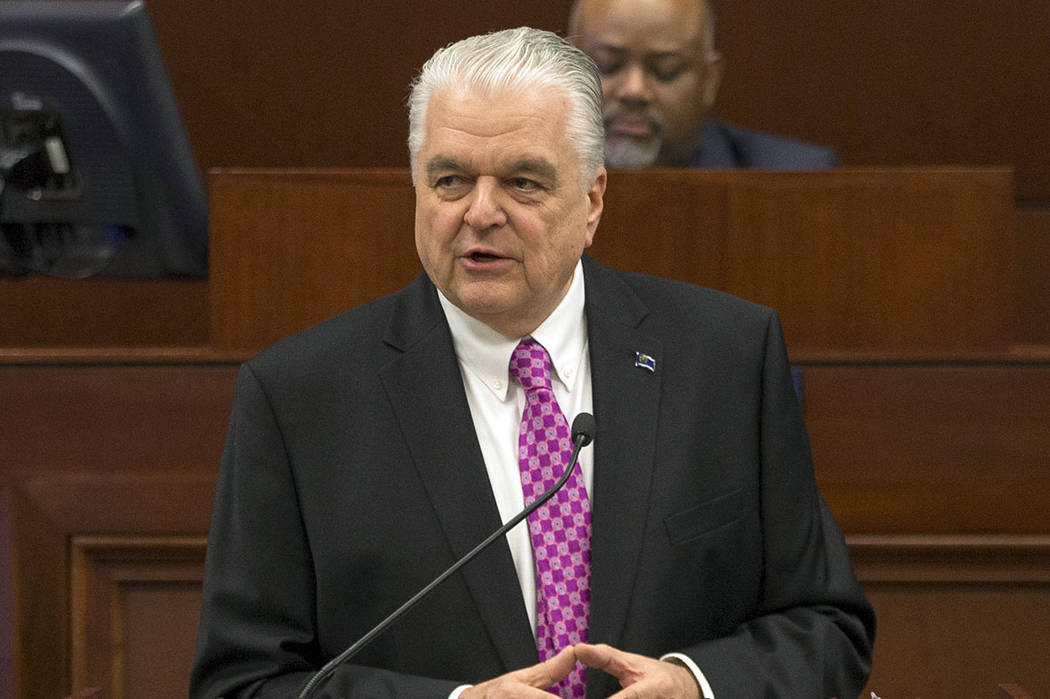Sisolak throws support behind Nevada affordable housing plan

Nevada Gov. Steve Sisolak is throwing his support behind a proposal to allocate $40 million in state tax credits before 2025 to build and preserve affordable housing.
Sisolak announced his approval of the program during his first State of the State address Wednesday night, and his proposed two-year budget recommends allocating $10 million in affordable housing tax credits beginning in the 2020-21 fiscal year.
“This alone won’t solve our housing crisis, but it’s an important first step and will make a real difference in the lives of low-income Nevadans who will have a safe and secure place to call home,” Sisolak said during his address.
The pilot program was proposed last year at the conclusion of the Nevada Legislature’s interim affordable housing committee. The committee requested a bill for this year’s legislative session that would copy the national Low Income Housing Tax Credit Program, the federal government’s most effective program to fund affordable rental housing.
Although text of the bill is not available, committee members recommended a state tax program that would give private investors a dollar-for-dollar reduction in state tax liability for helping to finance affordable rental housing. The housing would be subject to rent restrictions and tenant-income limits for 30 years.
As much as $10 million of tax credits could be allocated each fiscal year, and unused credits could roll over from year to year. The program would be administered by the Nevada Housing Division.
State Sen. Julia Ratti, D-Sparks, whose chairs the committee, said she was “elated” Sisolak is supporting the effort.
“There’s just such a significant need to make sure our seniors, people with disabilities (and) others who live on fixed incomes don’t get pushed out of their housing because of a strong economy,” Ratti said. “I’m gratified that the governor saw the need and chose to act.”
Nevada Housing Division Administrator Steve Aichroth said it is unclear how many units of housing the money could help build and preserve. However, an expert with the affordable housing nonprofit Nevada HAND made an estimate.
Mike Shohet, Nevada HAND’s executive vice president of real estate, said the state tax credit program should increase production of affordable housing by about 600 units a year. That’s on top of about 1,000 units a year the federal tax credits create.
“It’s a massive increase,” Shohet said.
Some 210,000 low-income households in Clark and Washoe counties need assistance obtaining affordable housing, according to the state’s 2017 Annual Housing Progress Report.
Shohet said the increased production from a state tax credit program would put a small dent in the state’s massive need for affordable housing, but the effort is a step in the right direction.
“How did the mouse eat the elephant? One bite at a time,” he said.
The need for affordable housing is being made more apparent as the Silver State’s economy prospers. Homes prices and rental rates are growing at a rate that outpaces most of the U.S., and during his address Sisolak noted that Nevada’s growth has been accompanied by the challenge of “making sure everyone who wants to live and work here can afford to do so.”
“There’s always going to be a segment of our population on a fixed income and unable to participate in that prosperity, and we need to make sure there are housing options for our lowest-income Nevadans,” Ratti said. “What we’re seeing now is people are becoming homeless solely because they are being priced out of the market.”
The committee of lawmakers have also sent letters to Nevada’s congressional delegation urging them to support the bipartisan Cantwell-Hatch Act, which would increase federal tax-credit allocations for affordable housing by 50 percent.
Contact Michael Scott Davidson at sdavidson@reviewjournal.com or 702-477-3861. Follow @davidsonlvrj on Twitter.
Editor’s Note: A previous version of this story misspelled the name of Nevada HAND’s executive vice president of real estate Mike Shohet.



















